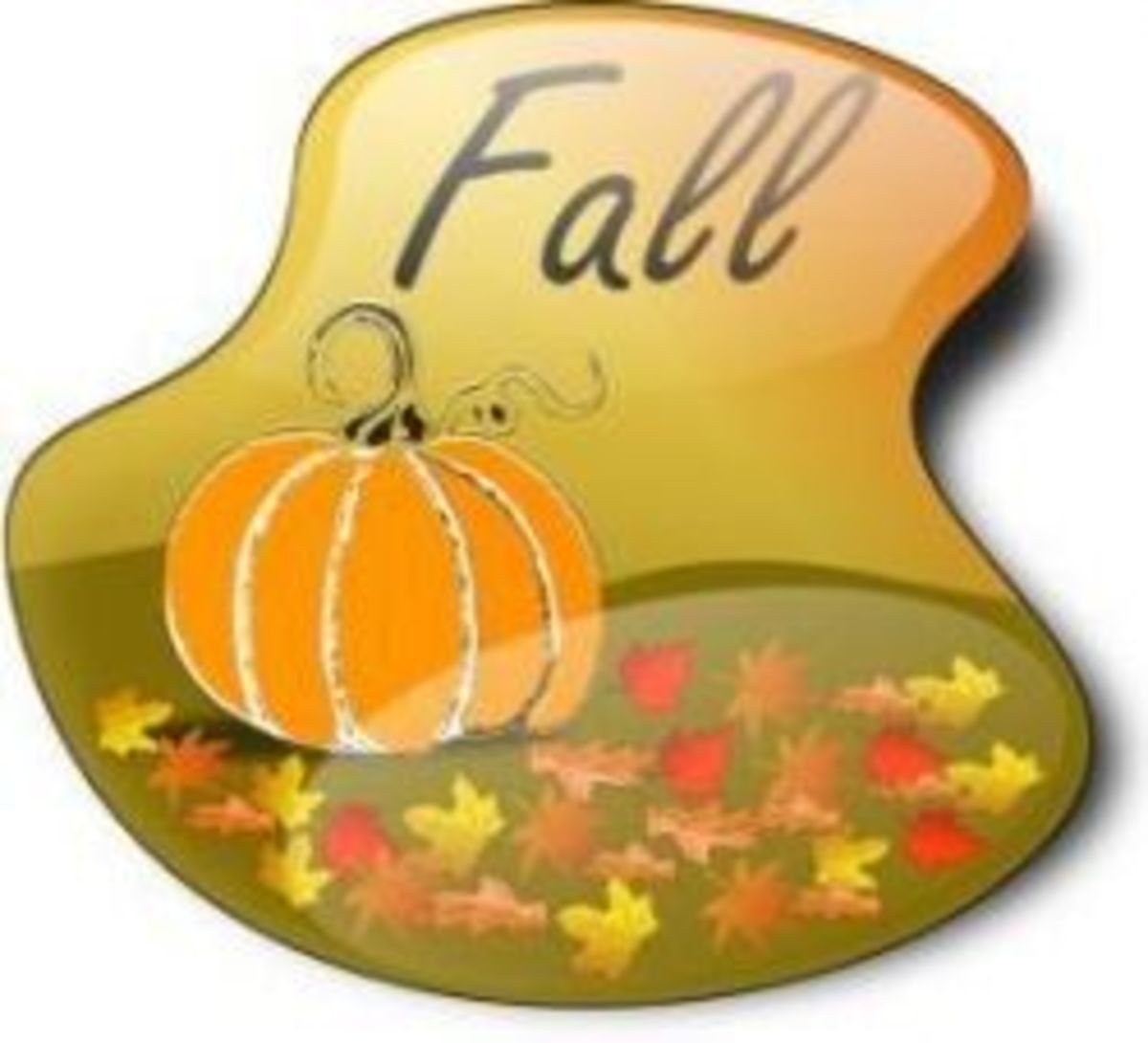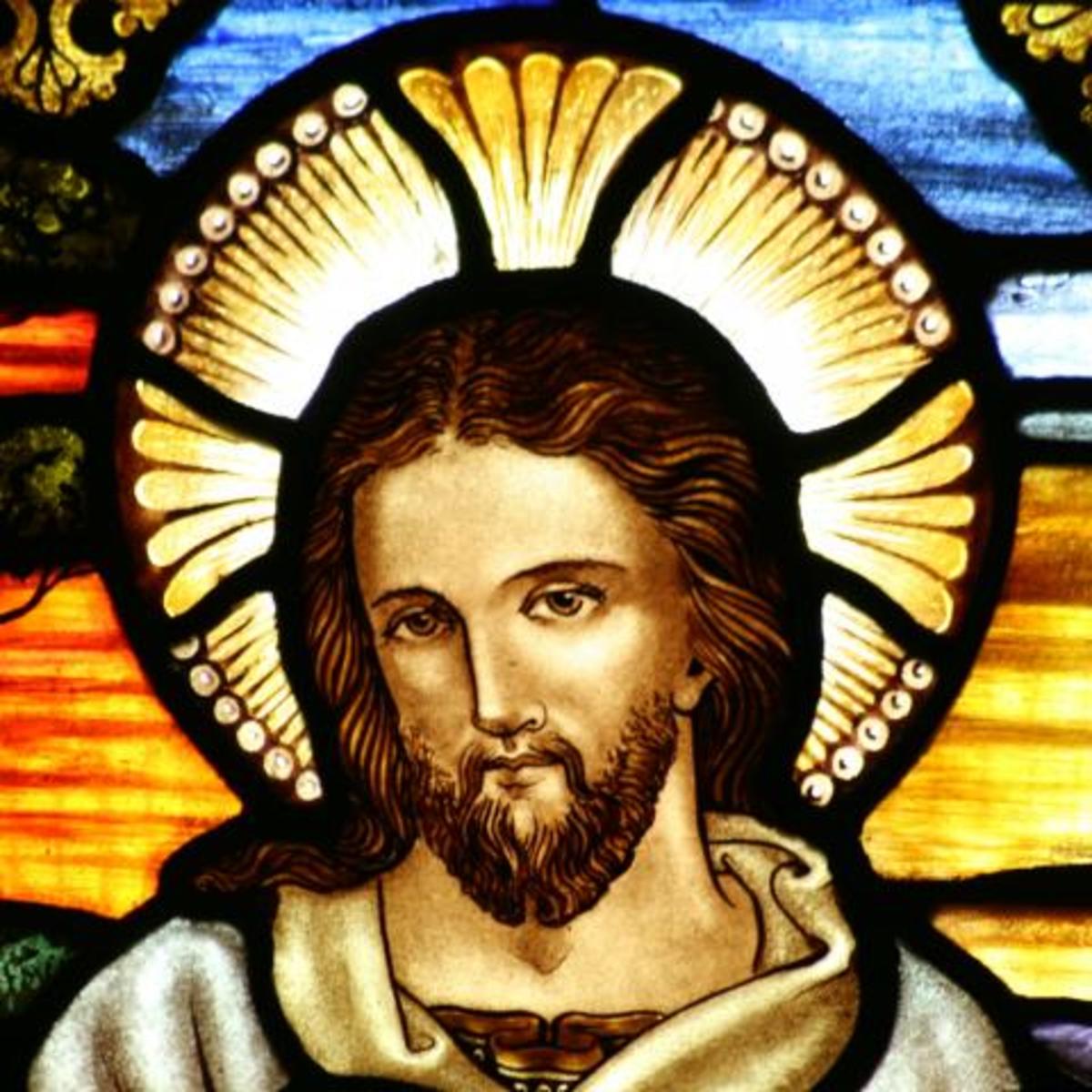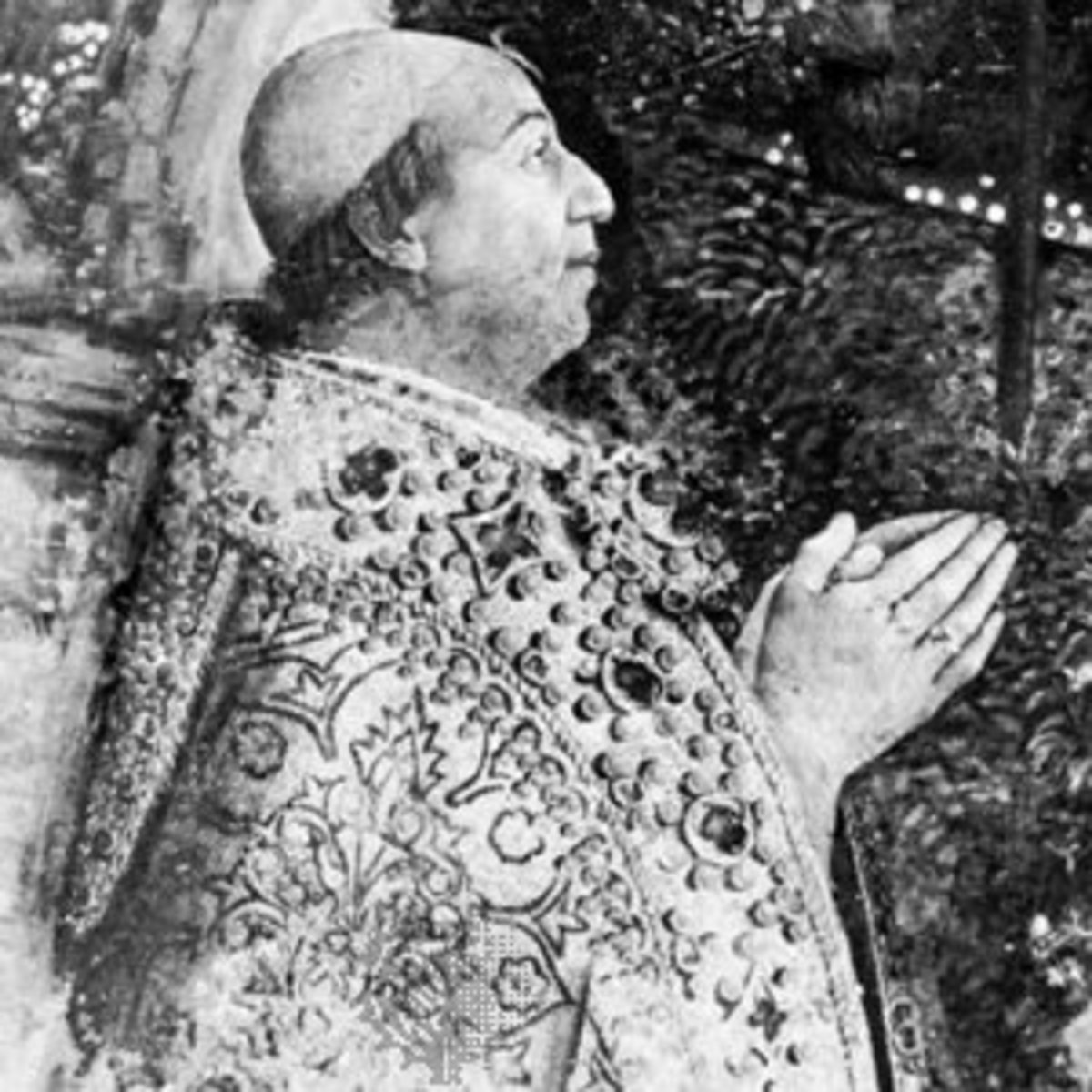'Tis the Season to be. . .

It's an extremely busy time of year. . .
'Tis the Season to be. . . (driven to the brink of sanity?)
It is all too easy when the flood gates are opened on "Black Friday" (the annual shopping frenzy starting the Friday following Thanksgiving in the U.S.A.) to get wrapped up in the chaos (or even suffocated in gift wrap), along with the confusion and rush of it all. The droves of festive holiday lights are flipped on like the pole lights starting a massive drag race, as the media circus goes out in full force and people everywhere are filled with a fervor like nothing ever seen!
'Tis the season to be "jolly", (fa la lala, etc.etc.) as the expression in the vintage song goes (though some seem to get a bit blinded by all the mass hysteria and succumb to a more near sighted form of tunnel vision in the process). You still gotta just "grin and bear it" as you can't become hardened by the commercial circus and let it overwhelm you to the point of wanting to become a recluse or be labelled an old "fuddy-duddy" and "scrooge".
I watch everyone trying to keep a positive attitude in spite of all the scuttle, braving their way through the confusion, noise and wrestling matches, so they can finally reach the doors (of their own HOMES?) and then leave, just to venture outside and see how the rest of the world is trying to wade through it all! Whew... take a quick breath, only about another (month) or so to go still?
Then after all the many days of to and fro, checking your list twice (and even thrice), you finally get down to the wire at those last few days when you suddenly discover that in trying to remember all those "other" people (whom you only see on rare occasions like ten year reunions or funerals), that you have mistakenly mailed the wrong box to so and so, and in the process forgot to even buy something for your immediate loved ones.
Then... its off to the grind again with all those other people in a similar predicament, where you find yourselves scratching and clawing for the last few morsels that are left over still, before the store finally closes for good. Not to also mention that there are people in other parts of the world who are literally "scratching and clawing" for a few real morsels of just something left to eat.
So...'Tis the Season to be Counting OUR Blessings!
At our worst, poorest and most humble state of being in many modern countries, we are much more wealthy in comparison than almost every other person that lives on this planet. The same planet Earth that was created by our Father in Heaven for us all to dwell and live in together, to SHARE CHEERFULLY with others, and ultimately enjoy as we serve our Lord's greater will.
Whoever dwells in the shelter of the Most High, will rest in the shadow of the Almighty.
I will say of the LORD, “He is my refuge and my fortress, my God, in whom I trust.
Surely he will save you from the fowler’s snare and from the deadly pestilence.
He will cover you with his feathers, and under his wings you will find refuge;
his faithfulness will be your shield and rampart." (Psalm 91:1-4)
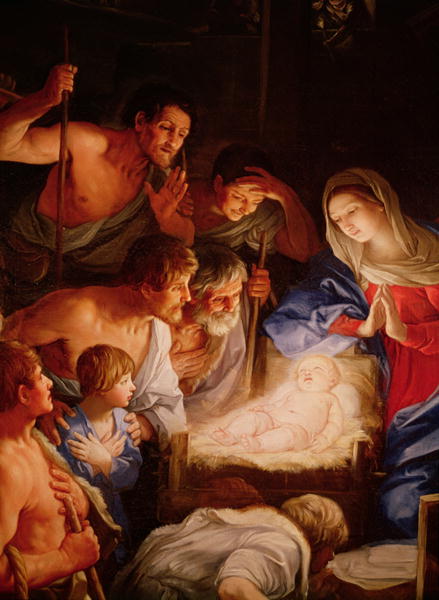
'Tis the Season to be Humble. . .
One thing to never loose sight of in the "Spirit of this Season", is that this season is all about the indwelling of the Holy Spirit within our Lord's creation. It is all about Him.
It is God's creation in which we are graced to live. We are here to be caretakers for that creation and to serve as good stewards. NOTHING is ours to do with as we choose (which many people tend to quickly forget with the distractions of the secular over-commercialized world). We are merely the custodians of the things we have been given and will be blessed to receive in the future.
If we can keep these things in mind with what we are about to potentially receive this year, then everyone would be much happier. There would probably be no complaints about that package full undergarments and socs, or a neck tie that doesn't really go with anything else that you wear!
What a change in attitude this simple reflection could make on the entire holiday season at this time of year.
--------------------------------------------------------------------------------------------------------------------------------
-------------------------------------------------------------------------------------------------------
Tackling the Season a Little at a Time.
'Tis the Season to be better Prepared. . .
Some people (and cultures) had the forethought to take this whole season in smaller more manageable stages instead of one massive onslaught of tradition and religious festivals surrounding but a few days. It's like the old expression about moving the mountain "one pebble at a time" actually being possible, versus attempting to do so all at once, which also seems like a great way to tackle the holiday season!
Also, by taking a more methodical and planed approach to the season, we can likewise make better use of this time when celebrating the holidays and being generous with others.
Our Hebrew neighbors for example have a time of gifting in this season associated with Hanukkah, or the the "Festival of Lights", which is an eight-day Jewish holiday commemorating the rededication of the Holy Temple (the Second Temple-2nd century BCE) in Jerusalem. Hanukkah is observed for eight nights and days, which may occur at any time from late November to late December depending on how it falls within the Gregorian calendar. The festival is observed by the lighting of a unique candelabrum, a nine-branched Menorah or Hanukiah, where one light is lit each night over the course of the event and accompanied by prayers and hymns (most notably Psalms 30, 67, and 91).
'Tis the Season to be Joyful in God. . .
Other more "festive" activities also surround this time with feasts, music, and games such as spinning the "dreidel" by children (a unique four sided top marked with symbolic Hebrew characters). The combined characters on this top spell the acronym for "A great miracle happened here", referring to the the miracle occurring in the land of Israel.
Also, the "Hanukkah Gelt" (Yiddish for "money") is often distributed to children to enhance their enjoyment of the holiday. In North America and in Israel it is common to likewise exchange gifts or to give children presents at this time, where a unique item is given on each day of the festival. In addition, many families encourage their children to give "tzedakah" (for charity) during at least one of the nights, in lieu of presents for themselves.
'Tis the Season to be a Cheeful Giver. . .
And now abideth faith, hope, charity, these three; but the greatest of these is charity.
(1 Corinthians 13:13 KJV)
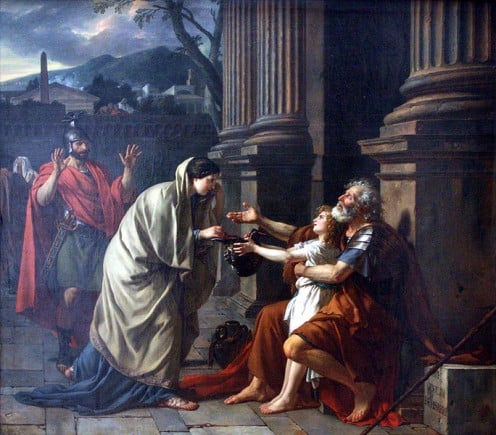
Being selfless for our own concerns and more concentrated towards the welfare and benefit of others by wanting to do good things for them, is again what the true nature of this holiday season is all about. It is in giving regardless of reward and without the need for any kind of recognition. By focusing on a motivation to do good without any form of compensation or benefits in exchange for these actions, we can then really embrace the "Spirit of Christmas".
This is probably why so many people enjoy the whole "Secret Santa" thing (annonymouns gift giving) when bestowing gifts on people and keeping the source disclosed from them. This form of compassionate care is why many people also enjoy assuming the role of "Santa" and contribute both their time and resources in providing a bit of "Christmas Cheer" for those who are less fortunate. Likewise, many groups and organizations will wisely use this season to distribute their collected bounty of resources in a similar fashion.
"Every man according as he purposeth in his heart, so let him give; not grudgingly, or of necessity: for God loveth a cheerful giver." (2 Corinthians 9:7 KJV)
It is in these and other forms of generous charity during this season that the wonders of God's love can be rise up and be seen in rare form, almost unmatched during the rest of the year. Wouldn't it be nice if this benevolent attitude could carry over and be celebrated all the time?
Another Christian observance is the "Twelve Days of Christmas", which are the festive days beginning on Christmas Day (December 25th), also being known as "Christmastide". The Twelfth Day of Christmas ends on January 5th, with the actual celebration of the Birth of Christ traditionally ending on the twelfth night of this festival. This is then followed by the "Feast of the Epiphany" (celebrating the revelation of God the Son as a human being in Jesus Christ) on the 6th of January.
Some modern traditions also observe using decorative "Christmas Calendars" celebrating the Twelve Days of Christmas before December 25th and use this as a method of "early" gift giving (one gift for each of the twelve days) leading up to the actual holiday. This is also somewhat similar in timing to the Jewish observance of celebrating this season and is yet another method of potentially minimizing the onslaught of rushed gifting that can occur as the end of the month approaches. This is time more wisely spent during the holiday season.
Now wouldn't it likewise be good if we celebrated these twelve days by also gifting to others - By devoting that time to helping those in need who could truly use a blessing in their lives?
The Nativity - "Birth of Christ"
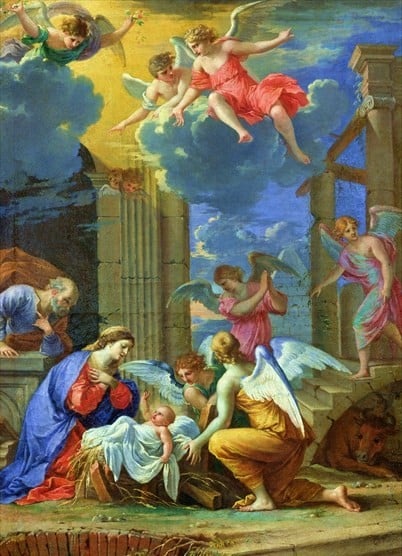
'Tis the Season to be celebrating God the Son, in Jesus Christ!
In contrast to the observances of the western Christian churches or those with roots in the Holy Roman Catholic origins, the Eastern Orthodox Church celebrates The Great Feast of the Nativity of our Lord beginning on the eve of December 25th (for those Orthodox churches which follow the Julian Calendar, the 25 of December actually falls on January 7th of the modern Gregorian Calendar).
The Twelve Days of Christmas therefore are observed as a festive period linking together the two Great Feasts of the Lord: Nativity and Theophany. The Nativity of Christ is a three day celebration, with the 29th of December being the Orthodox Feast of the Holy Innocents. The Eve of the Theophany (January 5th) is a day of strict fasting, on which the devout will not eat anything until the first star is seen at night and follows the same general outline as what is observed for Christmas Eve. That morning, is the celebration of the Royal Hours, at the conclusion of which is celebrated the Great Blessing of Waters, in commemoration of the Baptism of Jesus in the Jordan River. That evening an all-night vigil is observed for the Feast of the Theophany, which concludes the Eastern Orthodox approach to Christmas.
The actual term "Christmas" however, is literally derived from the Holy Roman Catholic church's religious celebration that commemorates the Birth of Christ, whereas the church ceremonial observance known as "CHRIST-mass" was first established in Catholicism and was to be observed on the 25th of December. This practice was also initiated in hopes of replacing the competing pagan winter festivals that similarly occured at this same time of the year.
And... in addition to all of these things mentioned above, there also seems to be a variance and debate within the Christian churches themselves as to what day is really the actual date of Christmas (the "Birth of Jesus Christ") itself.
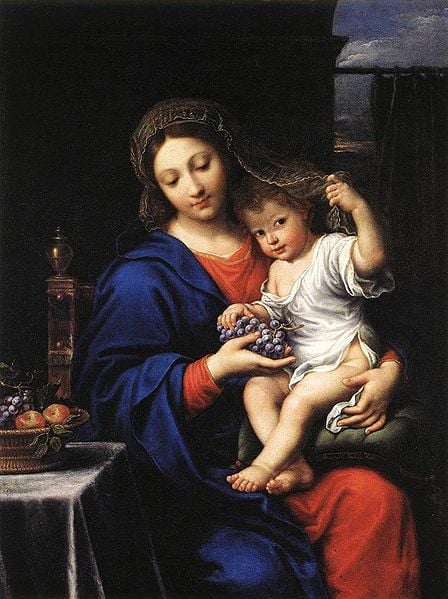
The Big "CHRIST-mass" Debate
'Tis the Season to be Patient with others. . .
The New Testament does not give a clear definitive date for the actual birth of Jesus Christ (it is more deeply embedded).
Now here's the real clincher to it all... With all the various holiday dates, festivals, feasts and others observances of religious "Holy" days, and then factoring in the variance between all the different time lines from the Hebrew lunar calendar to the Julian, Gregorian, and Mayan (just had to throw that one in) calendars, and accounting for Chinese cyclic years, leap years, "frog" years, and whatever else... Does anyone even really know what the real date of ANYTHING is anymore these days?
The best way (and only way) to sort through all of this confusion is to perform some labored research into the matter at hand.
Around 200 (AD) CE, Clement of Alexandria wrote that a Christian group in Egypt were celebrating the nativity on Pashons the 25th (corresponding to May 20th). However, in the Chronographai (a reference work published in 221 by the Christian historian Sextus Julius Africanus), it is suggested that Jesus was conceived on the spring equinox which popularized the idea that Christ was born on December the 25th. The spring equinox was March 25th on the Roman calendar, so this implied that His divine birth would have occurred in December.
'Tis the Season to be Honorable in the Lord. . .
In 245 (AD) CE, the theologian Origen of Alexandria then stated that, "only sinners (like Pharaoh and Herod)" celebrated their birthdays and that the idea of celebrating the birthdays of gods was blasphemous. Likewise was the fact that this time of year also corresponded with the Winter Solstice (on or around the 21st of December) and other pagan festivals, which the Christian church however was vying to compete with at the time. Honoring multiple gods during December’s Winter Solstice was a common practice and ended up becoming a week-long lawless worship of the god Saturn called "Saturnalia" (in 270 AD) on the Roman imperial calendar. It was decided however, that since Christmas did not celebrate Christ's birth "as a God" but "as a man", that this was not evidence enough for the church to consider it as not being an "appropriate" celebration or a valid festival for that time.
Winter festivals of this nature however were the most popular festivals of the year in many different cultures. Modern Christmas customs include: gift-giving and merrymaking which are all actually derived from the Roman Saturnalia; while greenery, lights, and charity also came from the observance of the Roman New Year. Yule logs, various foods, and other festivals came from Germanic pagan feasts. Pagan Scandinavia also celebrated a winter festival called Yule ("Yuletide"), held between late December and early January. Early Christians in the Eastern Orthodox churches who had then begun celebrating the birth of Christ as part of the Epiphany (January 6th) also seemed to mix social customs with these cultures. Lastly, as Northern Europe was the final part of the Holy Roman Catholic Empire to Christianize, its pagan traditions had a major influence on how the holiday season became celebrated by the masses at large. This of course directly influenced the future of how the European cultures would celebrate this occasion in the coming centuries as well.
* The influence of pagan rituals on the Christmas holiday season and its origins are more thoroughly covered in the following article by Carrie Bradshaw (Judah's Daughter): http://hubpages.com/hub/The-Truth-Behind-Christmas
I marvel that you are turning away so soon from Him who called you in the grace of Christ, to a different gospel, which is not another; but there are some who trouble you and want to pervert the gospel of Christ. But even if we, or an angel from heaven, preach any other gospel to you than what we have preached to you, let him be accursed. As we have said before, so now I say again, if anyone preaches any other gospel to you than what you have received, let him be accursed. For do I now persuade men, or God? Or do I seek to please men? For if I still pleased men, I would not be a bondservant of Christ. (Galatians 1:6-10 NIV)
Christmas was later promoted in Christiandom as part of the revival of Catholicism after the Council of Nicea (325 AD) met to re-unify the Church (and Rome) under the Holy Roman Catholic Church, with its main accomplishments being the settlement of the Christological issue of the relationship of Jesus to God the Father; the construction of the first part of the Nicene Creed; settling the calculation of the date of Easter (the resurrection of Christ); and the establishment of early biblical canon. Officially Christmas was introduced as an observance in December to Constantinople in 379 CE. The prominence of Christmas Day increased gradually after Charlemagne was crowned Emperor on Christmas Day in 800 CE.
'Tis the Season to be reflective of History. . . (and NOT Repeat its Mistakes).
The TRUTH of it ALL
So... in lieu of all these facts (and please take the time to read the other supporting articles), it is fair to say that paganism and its rituals have played a significant role in molding the way that modern Christians observe what we have labeled "Christmas", or the designated time to honor the Birth of Christ. This is also where we as Christians must be very careful in how we honor our Lord and in what secular (or pagan) practices we choose to emulate or participate in.
Dear friends, do not believe every spirit, but test the spirits to see whether they are from God, because many false prophets have gone out into the world. (1 John 4:1)
Unfortunately, many of the churches as we know it have "conveniently" forgotten their own roots. They have ignored the origins as well as the practices of certain rituals that are in direct conflict with the Word of God as it is written right out of scripture.
You might wonder why this is?... There is no doubt in my mind however, as to why:
The Spirit clearly says that in later times some will abandon the faith and follow deceiving spirits and things taught by demons. Such teachings come through hypocritical liars, whose consciences have been seared as with a hot iron. (1 Timothy 4:1-2 NIV)
This is just another clever deception wielded by the adversary to our Lord. Afterall, that adversary is the master deceiver. We become easily confused by the distortion of the facts and the improper teachings that some promote out of simple ignorance. A lot of this widely popularized "misinformation" is not even entirely intentional either, but it is harmful none-the-less to our thoughts and actions in how we observe and celebrate this season.
'Tis the Season to be seeking the Truth in Christ. . .
In the New Testament (the Gospel of Luke for example), Jesus was baptized by John the Baptist. The Bible gives us clues that John the Baptist (the cousin of Jesus) was born around the time of Passover (during the Hebrew month of Nisan, in the Spring) and that Jesus was born six months later (Luke 1:26-36), which would put the time of His birthdate at the Fall Festivals (during the Hebrew month of Tishri).
Tishri begins with the Hebrew "Feast of Trumpets" (Rosh HaShanah), which is a call to examine the scriptural evidence of the Messiah and for full repentance in preparation of His coming. It is also the Jewish New Year on the Hebrew calendar and signifies the birth of the world. Likewise, it is believed in Jewish tradition that Adam (the frist man) was created at this time and Rosh HaShanah is also prophetic in fortelling the coming of the Messiah.
Historically, the Romans established an annual census (Luke 2:1) in order to count the people of Judaea and levy their taxes. The people were ordered to return to their home towns and be counted. The Romans also opted to do this process during the Hebrew fall festivals since that was a time of the year when all the Jewish people from the surrounding lands would be on a pilgrimage to the Holy City of Jerusalem for their annual blessing at the Temple. It was easier to count the people of the nation if they were already coming to Jerusalem in the first place.
Biblically, Joseph and Mary (being with child) were likewise enroute for this same reason from Nazareth to Bethlehem the town of David (just south of Jerusalem), because Joseph belonged to the house and line of David. That is also why the city was so overcrowded, because of the crowds having gathered for the fall festivals. When they arrived no rooms were available at any of the lodgings, thus they sought shelter in a manger instead, where of course Jesus was born (both fulfilling the prophecy and the date indicated as the time of year for the Messiah's birth).
What a revelation all this is! It means the date that most of the traditional Christian churches observe in December for the birthday of Jesus is not even close.
* For even more facts that support this conclusion, please see the details in the following articles researched by Carrie Bradshaw (Judah's Daughter), which describes the historical data more thoroughly: http://hubpages.com/hub/The-Bible-Reveals-when-Jesus-was-Born
September 11th, The Birth of Jesus Christ by Joseph Prescia
REMEMBER THE REASON FOR THE SEASON!
The important thing is that Christians learn the historical facts and know that Jesus was not born during a time associated with pegan rituals, like the Winter Solstice or December the 25th and the following "New Year's" celebrations. We can discard all of those unnecessary practices and other "stuff" associated with it, that do not have their origins in actual scripture.
Be mindful of the secular trappings of ANY religious holiday (this one especially) in relation to how we observe and practice it. For example, when you gather around that Christmas tree with all those presents beneath it, don't let that tree and all its glory become a thing of idolatry. The shine and glitter of it all have nothing to do with the real Christmas (which is Jesus Christ!).
Hear what the LORD says to you, people of Israel. This is what the LORD says: “Do not learn the ways of the nations or be terrified by signs in the heavens, though the nations are terrified by them. For the practices of the peoples are worthless; they cut a tree out of the forest, and a craftsman shapes it with his chisel. They adorn it with silver and gold; they fasten it with hammer and nails so it will not totter." (Jeremiah 10:1-4 NIV)
The bottom line, is to remember what the whole idea behind this season and time of year is supposed to be about. It is all about JESUS and the things He taught for us to observe!
“A new command I give you: Love one another. As I have loved you, so you must love one another. 35 By this everyone will know that you are my disciples, if you love one another.” (John 13:34-35 NIV)
'Tis the Season of the "Blessed Rabbi". . .
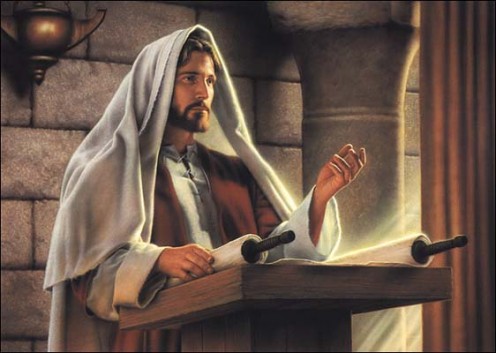
'Tis the Season to be Loving Our Neighbors. . .
Treat everyone with loving kindness and respect, not just in this season but beyond. Work towards thinking compassionately about our neighbors and what help we can provide to make a real difference in other people's lives.
"For I was hungry and you gave me something to eat, I was thirsty and you gave me something to drink, I was a stranger and you invited me in, I needed clothes and you clothed me, I was sick and you looked after me, I was in prison and you came to visit me. . ."
". . .The King will reply, I tell you the truth, whatever you did for one of the least of these brothers of mine, you did for me." (Matthew 25:35-36,40 KJV)
Therein lies the true "Spirit of Christmas" regardless of what physical date we may have mistakenly decided to assign to it. To properly celebrate Christmas, we should be observing the ENTIRE LIFE OF CHRIST, not just His birthday. It is about His minsitry, how he lived and treated others. It is about what He professed as righteousness and truth for all of mankind to bear witness to. Therein lies the true meaning of it all!
We have many things to be thankful for and many things we can share with others from the depths of our hearts. Many times it is these things that make the greatest gifts. After all, isn't that where the gift of Christ's life and sacrifice on the cross came from?... the depths of our Heavenly Father's heart. A supreme and divine gift of salvation, available to anyone who would accept it. The ultimate sacrifice was made on our behalf to bear us the ultimate gift.
'Tis the Season to be Remembering Why God came as a Man. . .
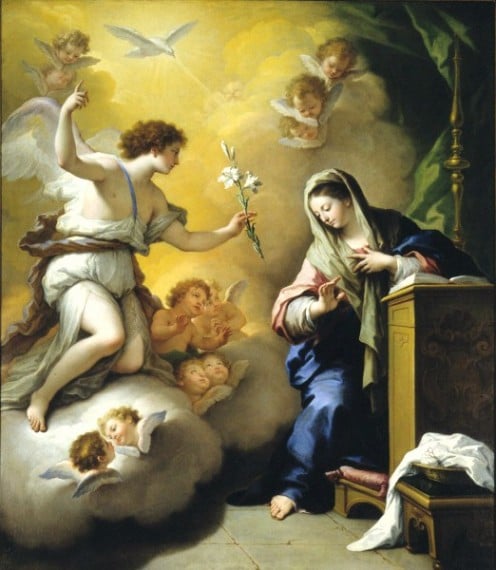
JESUS - He's the REAL THING!
'Tis the Season to be Following Jesus Christ. . .
If there is any consolation to the mind altering news that Christmas (in the Winter) IS NOT actually the birth date of Jesus Christ, then perhaps we can look at it this way:
This time of the year (end of December-beginning of January) would be the approximate date on the calendar that we can celebrate and honor our Lord as for the time of His immaculate conception. Because nine months later, Jesus would be born to the virgin Mary in time for the Jewish fall festivals during the month of Tishrei (or September).
So therefore, the current Christian observances for "Christmas" can represent and herald the coming of Christ just as easily instead; as when the Angel Gabriel first made his appearance and announcement to Mary, declaring her virgin pregnancy and the divinity of the Son of Man, in Jesus Christ. -AMEN
'Tis the Season to "Take No Glory" ourselves. . . for it is ALL About Him!
May the Peace of the Lord Always be with YOU...
HAPPY HOLIDAYS and TIDINGS of JOY to EVERYONE!
Similar Hubs on CHARITY and GIFTING
- "Well Done Thou Good and Faithful Servant!" (Part 1 - The Authority of Stewardship)
God Made Everything and Everything Belongs to Him! We are merely the caretakers of God's creation. By the dictionary definition, a "steward" is someone who manages someone else's property; hence we are the stewards of God's property (ALL things). - "Well Done Thou Good and Faithful Servant!" (Part 2 - The Responsibility of Stewardship)
Altruism is the selfless concern for the welfare and benefit of others and wanting to do good things for them, in contrast to selfishness which would be its direct opposite. - "Well Done Thou Good and Faithful Servant!" (Part 3 - The Rewards of Stewardship)
Are You Preparing for the Lord's Coming Kingdom Financially? How to handle money biblically is one of the most crucial elements in proper discipleship and stewardship in Christ. People do not realize the profound effect that these principles can have
-------------------------------------------------------------------------------------------------------


Building for the glory of Christ's coming Kingdom!
Here on the HubPages® of The Faith Network, we are laying down the framework for an extended internet-based Ministry and outreach. More content will be added on a regular basis... We invite you to check back often and see what is new.
The FAITH NETWORK provides and promotes practical Biblical teaching, dedicated devotional topics, relevant faith-based resources, and powerful spiritual insights on matters of faith and everday moral living practices for individuals, churches, charitable organizations, Christ-based businesses, and other ministry related efforts.
While you are browsing, see how other Christian HubPages® Authors are writing useful information and creating successful Hub websites. Also check out the official Hub Page Community on Christianity-The Bible and Jesus.
Pastor's Blog - http://www.ForeverinChrist.org
Ministry Site - http://www.Christ4Ever.org
More information about us here on HubPages: http://hubpages.com/hub/Forever-in-Christ
God bless and see you all soon!


